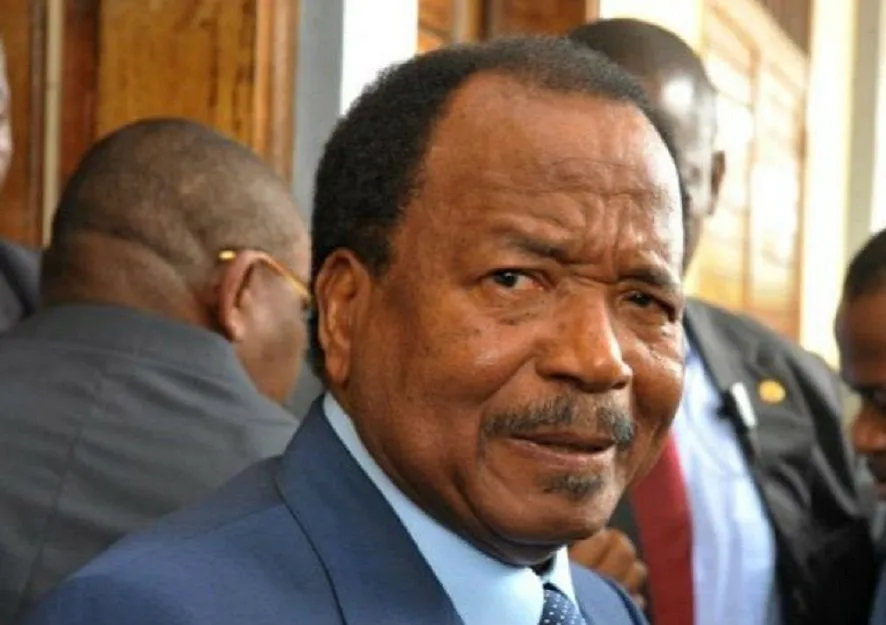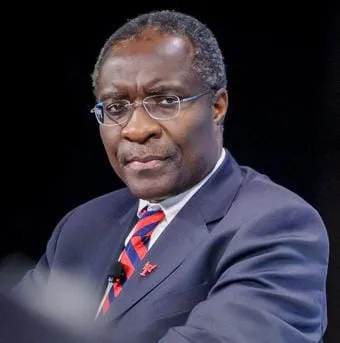Dr. Christopher Fomunyoh, Senior Associate for Africa and Regional Director of the National Democratic Institute for International Affairs has cast doubts on the possibility of Cameroon holding another presidential election without major electoral reforms.
The democracy advocate made the remark while addressing President Paul Biya’s 40-year stay in power, as well as other major challenges facing the country.
“There has been an outcry for electoral reform, especially since the last presidential poll in 2018; it is doubtful that opposition parties and civil society would accept a new presidential election without substantial electoral reforms,” he told The Guardian Post newspaper.
Citing the cases of Houphouët Boigny of Ivory Coast, Omar Bongo of Gabon, Gnassingbé Eyadéma of Togo, and Muammar Khaddafi of Libya, he said it was only logical for Biya’s succession to be a major concern at the moment.
“As the oldest president in the world, Biya,” he remarked, “has kept the disparate threads together during his four decades of rule through old-style autocratic methods such as patronage networks, excessive corruption, and the instrumentalization of the military and security services to squash or repress dissent and extract total loyalty to himself”.
Already nearing 90, the longtime –president, Dr. Fomunyoh stressed, “needs to awaken from slumber to the realization that people have died in the thousands, lives are being destroyed daily, a sizeable percentage of Anglophones believe that he and his regime are bent on destroying their educational and legal systems, and their culture and way of life, and so this conflict needs to end immediately”.
He further asserts that the regime has over time eliminated multiple persons who could be possible successors for the president, due to its insatiable want to remain in power.

AU unable to resolve Anglophone conflict, others
In the same interview, Dr. Fomunyoh touched on the aspect of rising conflicts in Africa as well as soaring displacement figures.
Among these, is the armed conflict that has plagued Cameroon’s English-speaking regions for over five years, leaving thousands dead and many more displaced.
This to him, “speaks to the reality of the multiple conflicts currently ongoing on the continent, and that are impacting heavily already marginalized and vulnerable populations, especially in rural areas and out of sight of political elites and diplomats who live in capital cities.”
Another cause of this, to him, is poor governance and the failure of national governments and our regional organizations to prevent or resolve conflicts and guarantee the safety, security, and wellbeing of citizens.
The silence of the rest of the globe through institutions like the United Nations and the African Union, to the NDI head, is not making matters easier.
His words: “… the African Union itself is beginning to lose its luster as the enthusiasm and hopes that accompanied the organization’s launch in 2001 wither… It is regrettable that the era when leaders such as Nelson Mandela, Thabo Mbeki, Olusegun Obasanjo, Nicephore Soglo, Ellen Johnson Sirleaf, Konare, and others talked about the peer review mechanism and the African Renaissance, now looks so distant.”
Narrowing down to the case of Cameroon, he testified that the country remains in very bad shape on many fronts including the security, political and economic dimensions.
May 20th controversy exacerbating armed conflict
“For some Cameroonians, the abolition of the name the ‘United Republic of Cameroon’ by decree in 1984 took a lot of the veneer off the commemoration of a unitary state,” the democracy expert told reporters.
Due to this, he noted, instead of the symbolism of unity May 20 should hold in Cameroon, the day rather crystallizes the contradictions of history.
The government’s manner of handling the armed conflict and using the day to mock political opponents worsens it.
“… It is not humanly possible to have people out feasting on a day that many see as the source of their pain and suffering, or political ills and misfortunes,” was his verdict.
He went on to reiterate that the only way out is going to be through a negotiated resolution with third-party facilitation. This, he added, is “… given the hatred and mistrust that now exists among the belligerents, and between sizeable chunks of the Anglophone population at home and abroad and the central government of President Paul Biya.”
“At close to 90 years old in a country where the median age is 19 years, and with 40 years as president, Paul Biya has long since missed the opportunity to lead Cameroon out of the conflict; yet the highly centralized Jacobin-like system of government that Biya has put in place is such that no one else makes decisions in Yaoundé except him,” he ended.
Mimi Mefo Info
Support Our News Team Here



